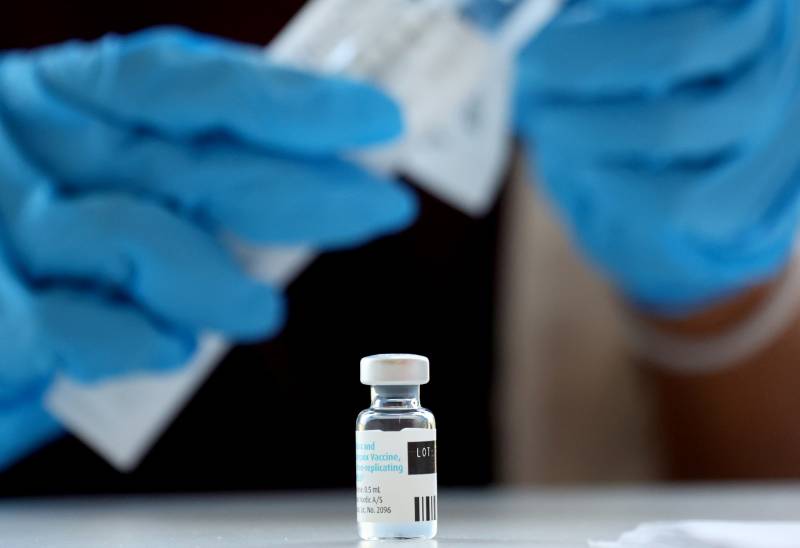Back in the summer and fall of 2022, an outbreak of the mpox virus— formerly known as monkeypox — hit the United States, particularly affecting gay and bisexual men, as well as trans and nonbinary people who have sex with men.
After a mass vaccination effort led by organizers from the LGBTQ+ community and public health officials, the rate of mpox infections dropped sharply to very low numbers in California. But with San Francisco’s giant 2024 Pride celebrations a month away, the city’s health officials are once again reminding local communities to seek out the free mpox vaccine if they haven’t already — even though there hasn’t been another outbreak here so far.
Keep reading to learn what we know about mpox in the Bay Area in 2024, the precautions local public health officials recommend ahead of Pride month, and where you can find an mpox vaccine.
Jump straight to:
- Where can I find a free mpox vaccine?
- What is mpox and how does it spread?
- What are the symptoms of mpox? What does the rash look like?
Do I need to worry about mpox again in the Bay Area in 2024?
The good news: There is no current mpox outbreak in the Bay Area or California, confirmed Dr. Julia Janssen, deputy director of the HIV/STI Prevention and Control Branch at the San Francisco Department of Public Health (SFDPH) — and case counts remain low. In 2024, San Francisco has only seen nine total mpox cases so far.
Janssen said that SFPDH is, therefore, basing its vaccine reminder on:
The possible seasonality of mpox
Based on previous surges of infections during the summer and fall months, city health officials recognize “that this may be a seasonal pattern,” Janssen said — and they’re making their recommendations accordingly. (After the “large surge of cases” during the initial 2022 outbreak, San Francisco saw a second, smaller surge of 87 cases the following year from July through December 2023.)
And while “we don’t know enough about mpox yet to know if we’ll see that again,” Janssen said, “because we’ve seen it in the past, we want to be ready, and we want to be prepared.”
Summer travel and mpox cases elsewhere
There’s also San Francisco’s Pride celebrations right around the corner in June — when many folks gather and arrive in the region from other parts of the United States.
“In the summer months, with more travel, more events, more interactions, and more gatherings, there’s more opportunities for mpox to spread,” Janssen said. And while nationally, mpox cases have “remained quite low over the past several months,” Janssen said, “we are watching other areas of the country.”
Globally, the Centers for Disease Control and Prevention (CDC) are also monitoring a recent outbreak in the Democratic Republic of Congo of a strain of mpox — called “clade I” — that causes more severe illness and higher fatality rates than the “clade II” type that’s been circulating in the U.S. According to the CDC’s most recent available figures, this clade I outbreak has resulted in more than 19,000 suspected cases and over 900 deaths.
“Thus far, there have been no known clade I cases of mpox in the United States,” Janssen said. “We would provide any updates if that were to change.”
Making the mpox vaccine routine
SFPDH and other health agencies want people to consider the mpox vaccine “as a part of comprehensive sexual health care,” Janssen said— rather than an emergency response.
“We want to encourage people to think about it as they’re thinking about STI testing, treatment and evaluation … as a part of their comprehensive sexual health,” she said.

